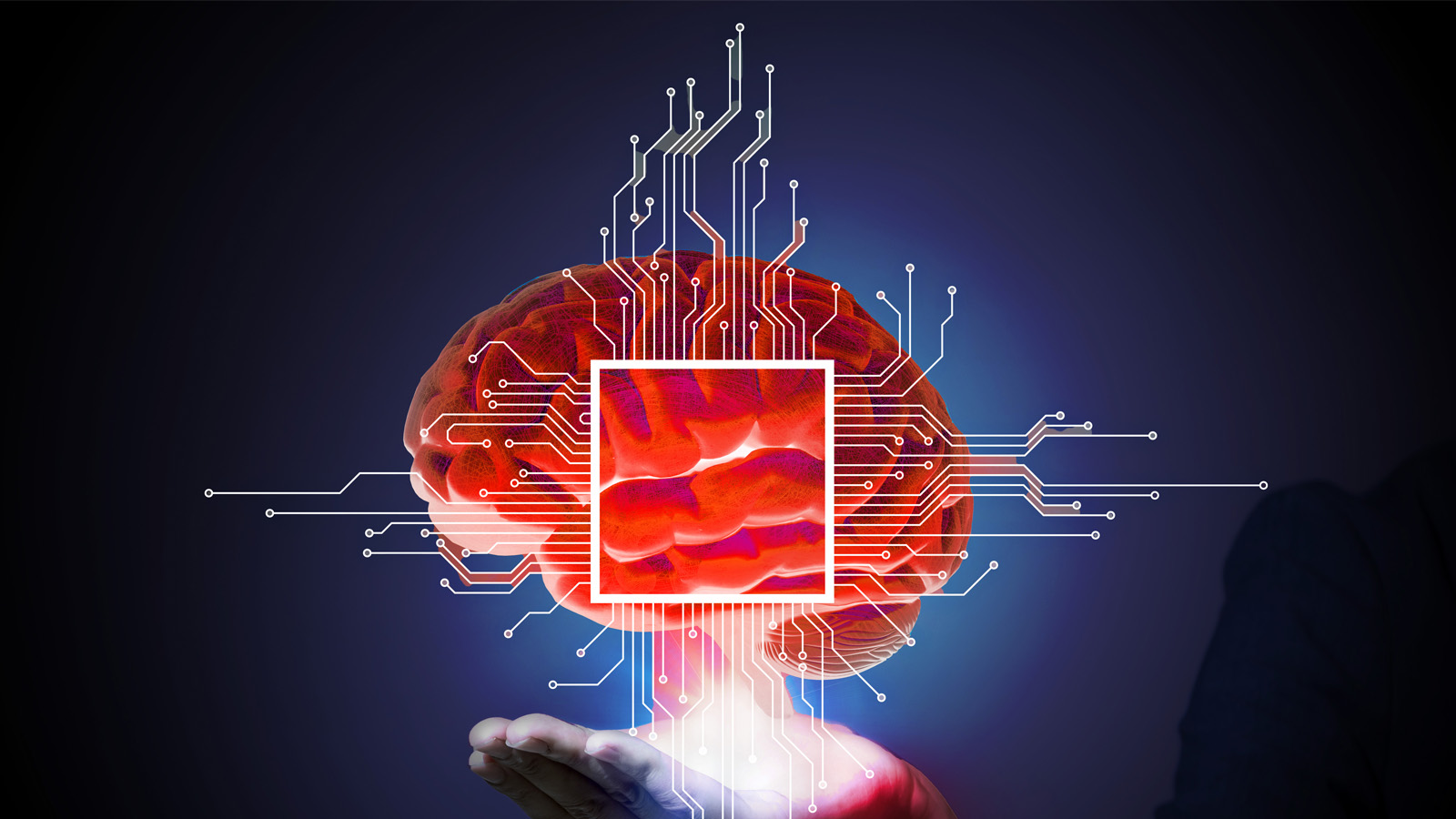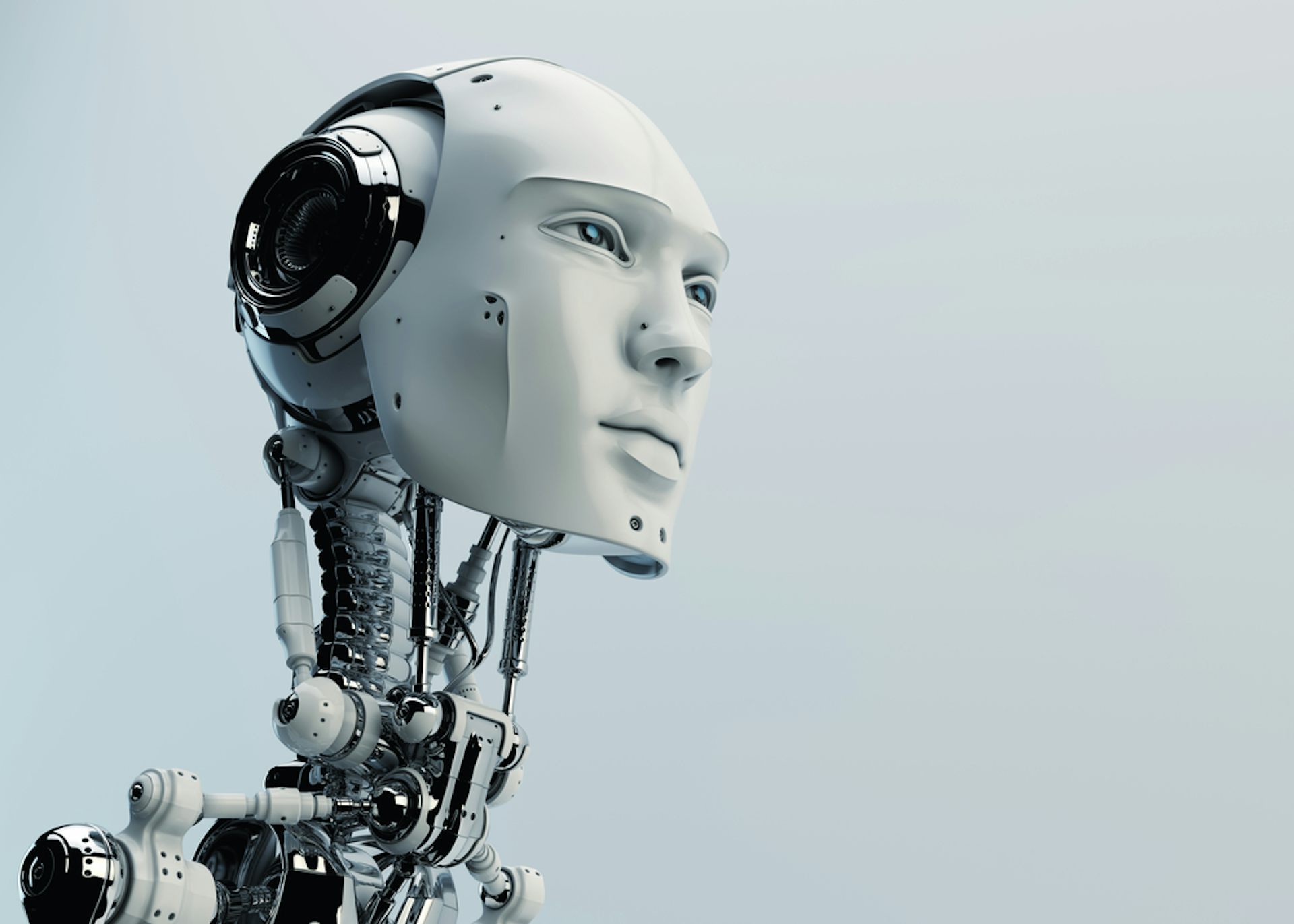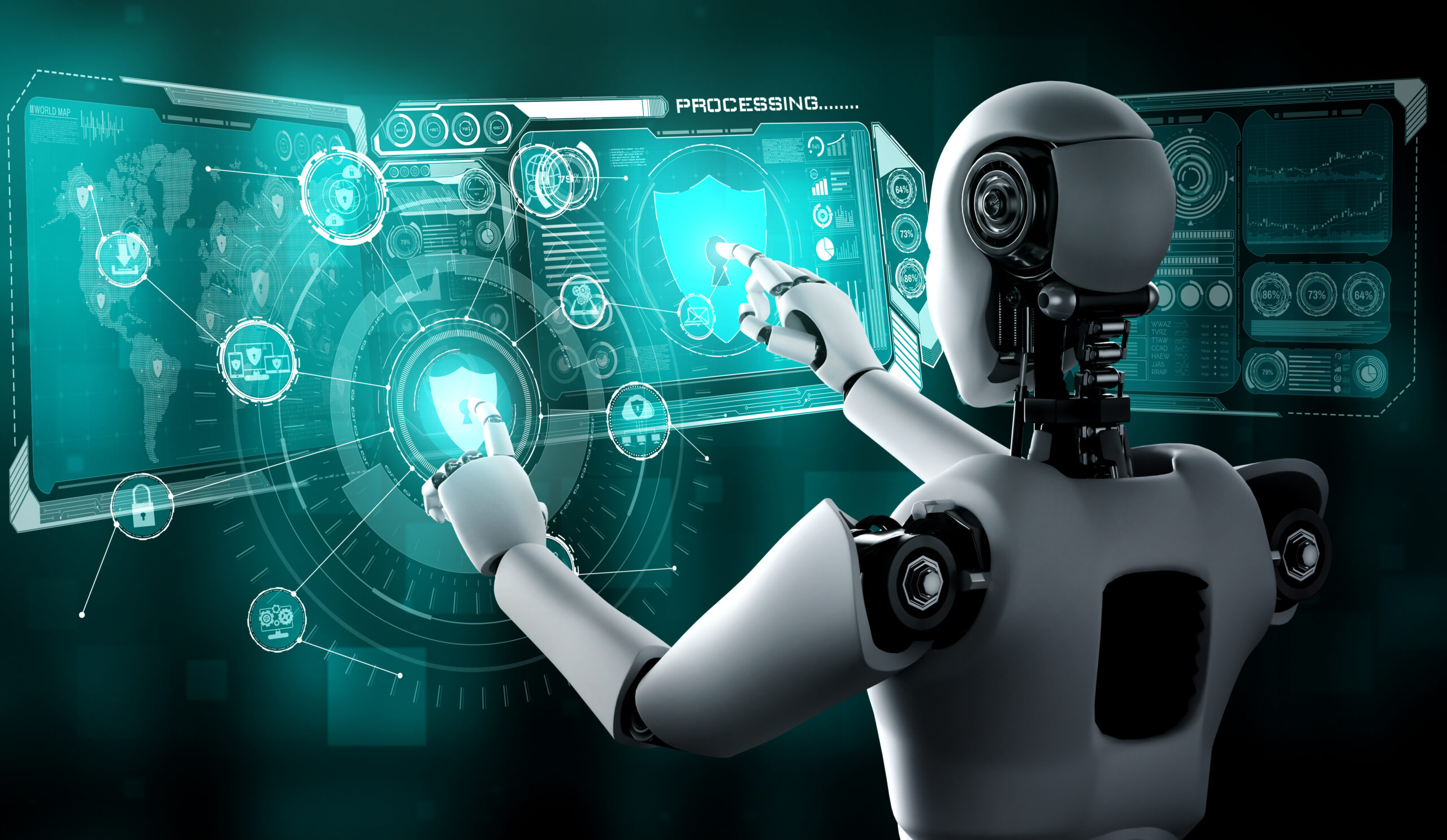
We might earn money when you click links to our partners. Discover more.

What is artificial basic intelligence (AGI), and why does it matter? As one of the most talked-about topics in technology today, it has actually sparked a race amongst top business like OpenAI and Google to turn this innovative concept into reality. Understanding AGI is essential since it has the prospective to revamp markets, affect our society in extensive ways, and change the way we engage with technology. Here's what you require to understand about what it might be able to do, how it may transform markets and fields, and the considerable challenges facing its advancement.

KEY TAKEAWAYS
• AGI differs from standard AI in key methods that it would be able to think, discover by itself, and adjust to brand-new challenges like people unlike conventional AI, which is created for specialized tasks and operates within a limited scope. It requires humans to update and fine-tune abilities. (Jump to Section).
• Once it becomes a truth, AGI would be able to make amazing advances in several fields, consisting of healthcare, research, and financing sectors. (Jump to Section).
• Creating AGI is hard due to the research study challenges that include technical, ethical, and societal problems. Addressing these difficulties is main to maintaining the safe and favorable advancement of this innovation. (Jump to Section)
Featured Partners: Expert System Software
Find out more
TABULATION
What is Artificial General Intelligence (AGI): A Clear Definition.
Understanding AGI vs Traditional AI.
Potential Applications of Artificial General Intelligence.
Challenges in Artificial General Intelligence Research.
3 Introductory AGI Courses to Consider.
Frequently Asked Questions (FAQs).
Bottom Line: Why Knowing What Is Artificial General Intelligence Matters.
What is Artificial General Intelligence (AGI): A Clear Definition
Artificial basic intelligence, or AGI, refers to a type of expert system (AI) that can analyze, find out, and carry out any cognitive job that a human can do. Unlike today's AI, which is developed to deal with specific jobs like recommending products or processing data, AGI would have the ability to adjust to new difficulties and use understanding throughout various fields. Simply put, this innovative kind of AI would believe and reason like a human. While AGI holds great prospective, it's worth keeping in mind that it is still a concept today, without any completely developed systems available yet.
Key Capabilities of Artificial General Intelligence
AGI would have a series of abilities that simulate human intellectual functions, so it can perform tasks beyond the narrow focus of the existing AI tools in the market. Some crucial capabilities include the following:
Human-Like Reasoning: The technology would be able to understand and make choices the method humans do. It would believe seriously, resolve issues, and develop services based on its own experiences and previous interactions, similar to how we use previous understanding to brand-new situations.
Solving Unfamiliar Problems: One of AGI's strengths is its possible to take on brand-new problems. Unlike traditional AI, which is trained to perform particular jobs, AGI would have the capability to handle issues it hasn't been straight trained to fix. It might determine how to approach an entirely brand-new obstacle, similar to human beings do when confronted with something we have actually never ever come across before.
Self-Learning and Adapting: AGI might fine-tune its skills and gain from experience, without the requirement to be manually upgraded every time. It would observe and analyze information, discover from mistakes, and discover much better ways to finish tasks with time. This indicates AGI could adjust to new scenarios and improve at tasks by itself.
Using Knowledge Across Different Areas: AGI would be able to take what it discovers in one area and use it to other jobs. For wiki.die-karte-bitte.de instance, if it found out how to resolve mathematics issues, it could utilize that knowledge to attend to obstacles in other fields, like science or company. The capability to transfer abilities throughout different areas is something human beings do naturally and would make the technology flexible in varied sectors.
Understanding and Reacting To Emotions: Recognizing and responding to human feelings would likewise be within AGI's capabilities. This would be necessary in settings where understanding individuals's feelings matters, such as health care, customer care, or social circumstances. By reacting to emotions properly, AGI would be better geared up to work with human beings in a reliable method.
Understanding AGI vs Traditional AI
The table below offers a picture of the major differences between AI and traditional or narrow AI by highlighting their capabilities, adaptability, and current status.
AGI would have the ability to believe, learn autonomously, archmageriseswiki.com and adapt to brand-new difficulties like humans. However, it is still theoretical and has actually not been recognized yet. On the other hand, standard AI is constructed for particular jobs and operates within a fixed scope. It can not get used to new tasks without human input.
For example, an AGI could learn to detect medical conditions, then utilize that knowledge to establish tailored treatment plans-and even adjust its approach based upon the patient's development. Additionally, it might use this analytical ability to tasks in entirely various fields, such as producing service methods or utahsyardsale.com recommending on ecological conservation. In contrast, conventional AI, like a diagnostic tool, can just examine medical information for specific conditions. It can not adapt to other areas or enhance on its own.
Potential Applications of Artificial General Intelligence
While AGI isn't here yet, its potential applications span numerous fields and hold terrific promise of extreme improvements in lots of sectors. Without being limited to specific jobs like narrow AI, AGI would be extremely versatile and could use its abilities to resolve multi-disciplinary problems. It could conquer obstacles presently beyond the capabilities of existing AI applications.
Transforming Healthcare
AGI would alter the video game in healthcare by identifying complex and rare diseases with greater accuracy, even in cases where signs are unclear or overlap with multiple conditions. It might create extremely tailored treatment strategies by studying client history, hereditary info, and real-time health information. In addition, AGI could speed up drug discovery, determining possible treatments in weeks rather than years by processing enormous datasets and running predictive simulations.
Advancing Scientific Research
In clinical research, AGI would be able to mimic experiments, analyze complex datasets, and produce hypotheses. It might speed up developments in quantum physics, genomics, and climate science. By integrating knowledge from numerous domains, the innovation could reveal connections and solutions that might otherwise go undetected by conventional AI.
Improving Industry
Organizations in the commercial field might utilize AGI to increase efficiency in real-time by handling entire supply chains. It would predict and deal with disruptions before they take place. In production, it might manage self-governing factories, enhancing production procedures while keeping security and quality requirements. Its ability to adjust to changing circumstances would make it a vital tool in industrial environments.
Enhancing Business Strategy
AGI might improve service decision-making by examining market trends, customer habits, and operational data to discover opportunities and risks. In contrast to narrow AI systems, AGI would innovate options to challenging business issues, such as handling financial unpredictability or forecasting long-term market shifts. Its capability to gain from diverse sources would empower organizations to remain competitive.
Redefining Finance
In the financial sector, AGI could increase forecasting accuracy by finding patterns in vast quantities of monetary data, so financiers and institutions can make informed decisions. It would likewise have the ability to find scams in real-time by recognizing subtle anomalies that traditional AI systems may miss. Additionally, AGI could construct more robust monetary models, considering complicated variables and situations to alleviate dangers.
Challenges in Artificial General Intelligence Research
Developing AGI is one of the most enthusiastic goals in innovation, but it comes with many troubles. These obstacles include technical, wiki.snooze-hotelsoftware.de ethical, and societal areas, making AGI development an elaborate and multi-faceted process. Overcoming the following challenges is tantamount to ensuring safety, maintaining ethical standards, and carefully preparing how AGI's intro and usage will impact individuals, industries, and society as a whole:
Making AGI Truly Flexible: AGI would need to manage a wide variety of issues and adjust to brand-new circumstances, similar to humans. Building a system of versatility is incredibly hard due to the fact that existing AI tools are not created to believe or learn at this level of sophistication.
Massive Computing Needs: To reproduce human intelligence, AGI would require enormous quantities of computing power to process information from diverse sources rapidly. Determining how to make such systems effective and efficient enough for real-world usage is a substantial difficulty.
Understanding Human Intelligence: We do not totally understand how human thinking works, specifically complicated elements like instinct or consciousness. Without this understanding, it's challenging to develop makers that can imitate human-like thinking.
Making AGI Safe and Ethical: fishtanklive.wiki AGI could potentially be misused, like to produce biased systems or harmful tools like autonomous weapons. Researchers must ensure that AG is developed properly and follows stringent ethical standards. This is a challenging task that requires worldwide partnership.
Keeping It Under Control: There's a threat AGI could act in ways we don't anticipate, particularly because it would have the capability to discover and alter gradually. Ensuring that these systems remain aligned with human values and are safe to use is among the greatest challenges in AGI research study.
Impact on Jobs and Society: If AGI becomes a reality, it could change jobs or trigger economic inequality by benefitting some groups more than others. Getting ready for these social effects is simply as crucial as developing the technology itself.
High Costs and Resources: Researching AGI necessitates a lot of money, time, and expert understanding. Not all companies have these resources, slowing down progress and leaving smaller organizations out of the race.
3 Introductory AGI Courses to Consider
Familiarizing yourself with AGI can give you an one-upmanship, whether you want to advance your profession in AI or simply want to stay notified about emerging innovations. The following initial courses can assist you get a deeper understanding of what synthetic basic intelligence is, so you can strengthen your understanding about this promising AI advancement.
Artificial General Intelligence (AGI): An Introductory Course on Udemy
This Udemy course provides a fundamental understanding of AGI, ideal for beginners with no previous experience. The course covers appropriate topics, including the structures of AI, the fundamentals of AGI, and the current patterns in the field. It likewise checks out the benefits, dangers, and difficulties related to AGI, equipping you with insights into what the sophisticated innovation can accomplish. The entire course includes 15 lectures and can be finished in around 45 minutes. Upon completion, you will get a certificate to reinforce your credentials in the job market. This initial course expenses $24.99.
%20Is%20Used%20In%20Biometrics.jpg)
Intro to Artificial General Intelligence (AGI): Future of AI on Udemy
Udemy's introductory course uses a comprehensive summary of AGI for wiki.rrtn.org students without any technical background. It goes over the historic context and structure of AGI, the differences in between narrow AI and AGI, and ethical factors to consider surrounding its advancement. In addition, it resolves future trends in AI and AGI, clarifying the challenges and chances that lie ahead. Spanning one hour and 46 minutes, the course consists of 39 lectures, on-demand video, and downloadable resources. It also has a useful test at the end to reinforce your understanding. You will be granted a certificate once you finish the course. It is readily available as part of Udemy's premium strategies, beginning at $20 per month, or as a different purchase of $49.99.
Artificial General Intelligence (AGI) on Udemy
This Udemy course brings a clear and succinct introduction to the subject, with on-demand videos and 22 lectures. It elaborates on major AGI concepts and the role of robotics in AGI development. It also takes a look at the ethical, software application, and hardware difficulties in developing AGI. The course offers quizzes to check your understanding and a certificate of conclusion. Priced at $44.99, it is made for students at any level, making it available and important for anyone who wants to learn more about AGI.
Frequently Asked Questions (FAQs)
Achieving AGI might change markets, boost decision-making, and result in significant developments in technology. However, it also raises issues about principles, job displacement, and the need for appropriate guideline to ensure it is developed securely and properly.

Experts disagree on how far we are from achieving AGI. Sam Altlman of OpenAI believes in 2025, AI agents might sign up with the labor force, ultimately paving the method to AGI development. On the other hand, a study of AI researchers puts the median quote around 2047. Despite rapid AI developments, current systems are still restricted to narrow tasks and lack the broad, flexible thinking of humans-so AGI is likely still decades away.
The idea of AGI completely changing human beings is still disputed. Even though it's likely that AGI will assist us by taking over repeated jobs, there is a possibility that it could displace specific jobs. That stated, instead of completely changing human beings, AGI is expected to work alongside us, handling technical responsibilities while we concentrate on tasks that require creativity and compassion. At the end of the day, the effects of AGI will depend upon how society picks to handle and incorporate it.

Bottom Line: Why Knowing What Is Artificial General Intelligence Matters
Understanding artificial basic intelligence is important because this innovation might change industries, fix hard issues, and transform how we utilize AI. But as we start to establish AGI, we should thoroughly deal with several challenges, including technical problems, ethical concerns, and its overall effect on society. By discovering AGI's potential and risks, we can work toward making sure it is developed responsibly and utilized in methods that would benefit everybody.








